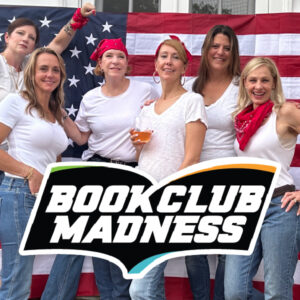LIBRARIES MATTER
We asked Justin Perry to share his perspective on libraries, our city, and building a stronger community:
Born in Presbyterian hospital 38 years ago, a lot has changed in my hometown since 1980. It’s bigger and shinier, but also more divided in many ways.
We have a more picturesque skyline, more restaurants, and more big events. We also have more segregated schools, bigger gaps between haves and have nots, and greater social distance between different sets of people than ever.
However, as I walk down North Tryon Street in our rapidly growing uptown, I see a familiar face in a familiar place.
As I step into the Main Library, I see an Irwin Avenue Elementary classmate who recently began working there. We share an embrace and experience instant nostalgia.
Immediately after, I see two Charlottes up close and personal. One man with tattered clothes, and luggage likely carrying all of his possessions is flanked by another wearing a suit, topcoat, and cuff links that likely retail for more than his contemporary’s possessions. While I could cynically discuss the realities of such gaps, I’d like to acknowledge the beauty of this hub that was central to my childhood providing both men with free and equitable access.
From expanded internet access, hard copy and audiobook versions of literature, staff members willing and able to provide historical presentations with primary sources, programming for children, and supports for adults at various reading levels, there’s no shortage of free offerings from the Library to the public.

Unlike many parts of our society, the Library doesn’t focus on who you know, what “stock you come from,” or what you can offer it. The Library actually asks and answers the rare question of what it can do for you. In a society full of opportunities for division, the Library seeks to fill gaps that at times can seem overwhelming in a community that has just started facing some of these uncomfortable realities.
On a Monday winter night in January, 1,200-1,500 people of various racial, socioeconomic, age, and ZIP code backgrounds packed into a congregation and overflow of First Baptist Church West to see Richard Rothstein and local community members discuss our affordable housing crisis and Rothstein’s book The Color of Law, detailing our government’s segregation of our nation. This response doesn’t occur without Charlotte Mecklenburg Library freely distributing the book at their various regional locations throughout the community.
Our largely divided community took a step in coming together for shared knowledge and a vital movement. While it will take sustained commitment to grow more intentionally, a vital cog in that growth being more equitable will be investment in growing our free, public Charlotte Mecklenburg Library system.
Justin Perry is a therapist for people coping with mental health and substance use disorders. He is also an advocate and speaker on behalf of social justice and equity in education, housing and criminal justice throughout the Charlotte Mecklenburg region.



